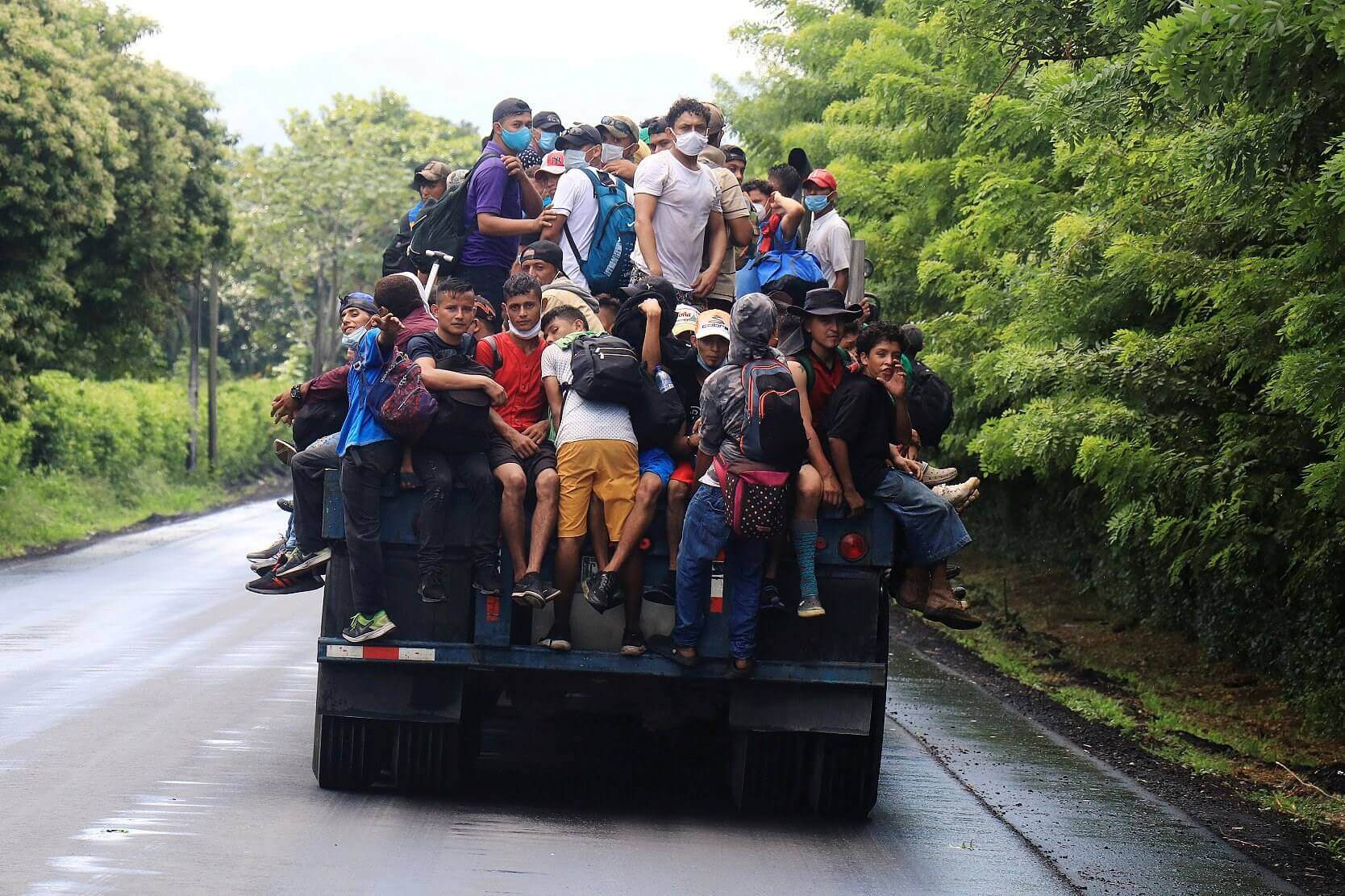In an indication of the growing coordination between the United States (US) and its southern partners, the Mexican and Guatemalan militaries deployed troops to their borders to prevent a caravan of Honduran migrants from advancing in their goal of reaching the US.
In fact, Guatemalan President Alejandro Giammattei announced on Sunday that security forces had sent back roughly 3,500 Honduran migrants in a bid to prevent the spread of the coronavirus. He remarked, “We are experiencing a pandemic in Guatemala which has cost us to control with months of efforts,” adding that it is his “obligation” to prevent the further spread of the virus.
Accordingly, Giammattei declared a “state of prevention” in the regions bordering Honduras on Thursday, whereby he implemented restrictions on the freedom of movement and authorized increased military presence. Guatemala opened its borders just over two weeks ago, but only 70 Hondurans in the caravan provided the necessary documentation, which includes a negative COVID-19 test.
Honduras is a country of great concern to the immigration-averse Donald Trump administration, and represents one of the countries with the largest number of US-bound migrants. In fact, the US deported in excess of 100,000 Hondurans in 2019 as part of Trump’s efforts to send back undocumented migrants and clamp down on provisions for refugees and asylum seekers.
Meanwhile, Mexican President Andrés Manuel López Obrador put forth the unfounded theory that the new caravan of migrants seeking to enter the US is driven by political motives, given that the US election is just weeks away. He said, “It is very weird, very strange that the caravan set out on the eve of the vote.” In truth, however, several of these migrants earn between $4 a day to $215 a month, both of which are wildly insufficient to meet the needs of both themselves and their families.
Mexico, too, deployed its army, the national guard, and the National Migration Institute (INM) to seal its southern border in order to prevent Honduran migrants from entering the country via Guatemala.
During López Obrador’s tenure, Mexico has grown significantly closer to the US, in spite of Trump’s racist and anti-immigrant rhetoric. As far back as April, the Mexican leader hailed his “friendship” with Trump, and in fact visited the White House in July, marking his first trip outside of Mexico.
This latest development with the Honduran caravan is not the first such incident. When an overwhelming amount of asylum seekers arrived at the US-Mexico border last year, Mexico avoided the crippling tariffs Trump was threatening by deploying its National Guard to stop several Central American immigrants headed north to the US. Mexico also acquiesced to Trump’s policy of making asylum seekers wait in Mexico while their cases were being processed in the US. Even during the ongoing pandemic, the US is using its health emergency to send Mexicans and Central Americans back to Mexico.
Aside from Mexico and Guatemala seeking to protect their coronavirus-hit and highly vulnerable economies, this newfound bonhomie also reflects a new American strategy of bolstering alliances in Latin America and the Caribbean.
In fact, in August, the US National Security Council unveiled its Western Hemisphere Strategic Framework. In it, the US mentions how it is seeking to expand its “deep geographic, economic, and cultural” ties in its “neighborhood”. Simultaneously it seeks to counter “malign political influence” and “economic aggression” of China, which it says has increased its “state-driven trade, investment, diplomatic, technology, media, security, and health outreach” in the region.
Accordingly, the US has already made significant overtures to expand its ties with Colombia, Brazil, Suriname, Guyana, and the Dominican Republic.
Mexico & Guatemala Deploy Border Troops to Stop Honduran Migrant Caravan From Reaching US
Guatemala has already sent back around 3,500 Honduran migrants in an apparent bid to quell the spread of the coronavirus.
October 6, 2020

IMAGE SOURCE: STRINGER / REUTERSThe US deported in excess of 100,000 Hondurans in 2019 as part of Trump’s efforts to send back undocumented migrants and clamp down on provisions for refugees and asylum seekers.
